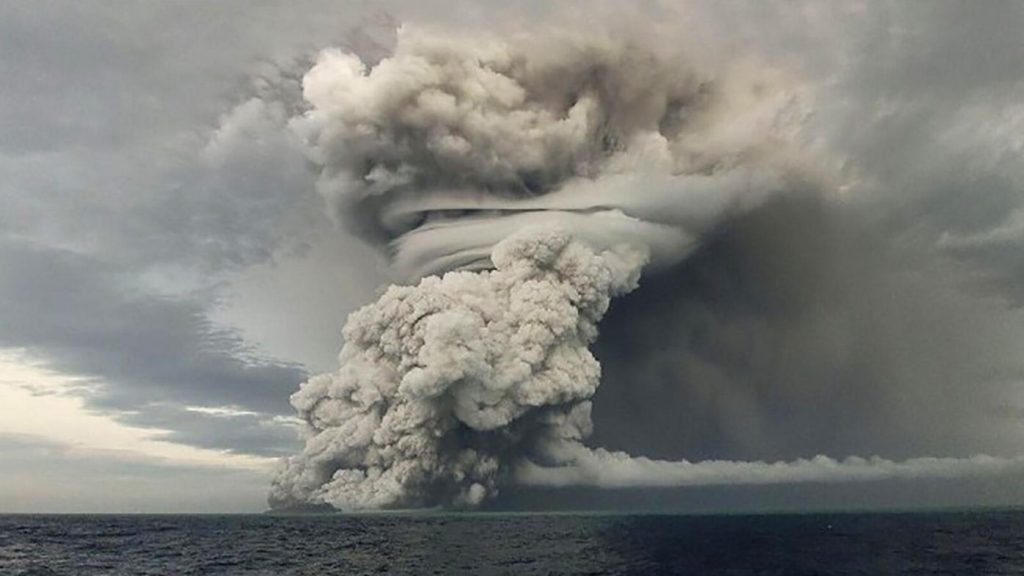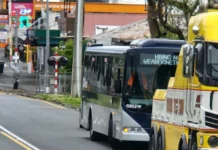A series of thunderstorms heard in Tonga since this morning triggered a sense of horror among some residents who recalled their terrifying experience of hearing the booming volcanic eruption on January 15.

“What’s that explosion, hope it’s not from the twins”, said one on Facebook, referring to the two islands of Hunga Tonga and Hunga Ha’apai where the eruption occurred.
“Do not thunder like that”, another said in Tongan, comparing this afternoon’s thunderstorms to what they had heard on January 15.
“What type of thunder is that. Is it from the sky or the Hungas”.
The Tonga Meteorological Services immediately posted on Facebook and said they were in fact thunderstorms and did not come from the two Hungas.
“Sorry, the thunderstorms today were from the stormy weather and did not come from the volcano” it said in Tongan.
Responding, a commenter wrote in Tongan: “Thank you so much for clarifying as we were all in shock when we heard the thunder.”
“We must tremble as we would not forget what happened on January 15,” another wrote.
Tongatapuans continued reporting loud thunder and heavy rain this evening.
Met Service later said this evening that associate clouds with some showers and thunderstorm will affect Tongatapu, ‘Eua, Ha’apai and Vava’u tonight and tomorrow.
Traumatic experience
No doubt it will take years for the people of Tonga to get over the traumatic experience.
The booming of the January eruption was described at the time by Tongatapu locals as deafening and raucous. The atmospheric shockwave travelled around the globe and was picked up on air pressure sensors as far away as Iceland.
A scientist said the eruption now holds the world record for being heard so far from the volcano. Audible booming was heard from New Zealand to the south and Alaska to the north. A tsunami was triggered, killing four people, flattening houses and wiping out some nearby islands.
An ash cloud unleashed by the blast settled over some of the islands including the main island in a monochromatic blanket.
According to NASA, the volcanic eruption in Tonga was hundreds of times more powerful than the atomic bomb the US dropped on Hiroshima at the end of World War Two.
According to recent academic research, the number of extreme disasters have increased greatly in recent years and resulted in threats and traumatic reactions in communities around the world.
PM Visits Nomuka
Meanwhile, Prime Minister Hu’akavameiliku visited the people of Nomuka in Ha’apai on Saturday, March 5.
Nomuka was one of the islands hardest hit by the tsunami, which claimed the life of a 49-year-old woman.
Hon. Hu’akavameiliku told the Nomuka residents the government would do all it could to help them return to normal life.
The Prime Minister visited the island on an RAAF Chinook helicopter, accompanied by the Australian High Commissioner to Tonga, Her Excellency, Ms. Rachael Moore.
The Prime Minister said. “I am here to see for myself and to see what needs to be done and ensure no one is left behind.”
Hon. Hu’akavameiliku extended his heartfelt gratitude to the Australian Government and to the Australian High Commissioner for the availability of the helicopter to make his visit possible.







